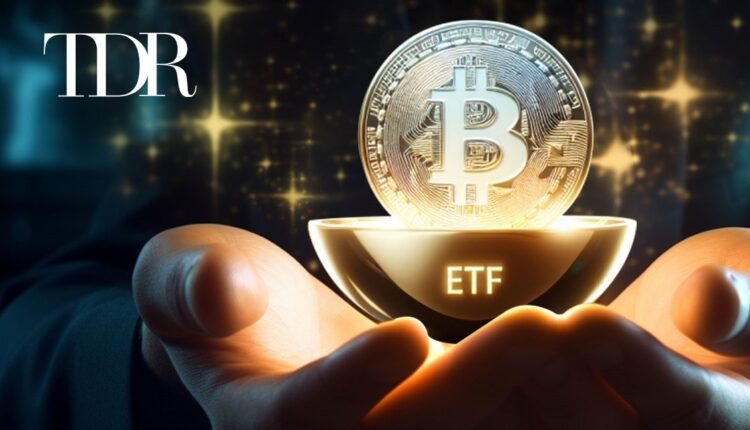
How Bitcoin ETFs Could Change HODL Culture
The TDR Three Key Takeaways regarding Bitcoin ETFs and HODL Culture
- Bitcoin ETFs attract traditional investors who may change the “HODL” culture by regularly rebalancing their portfolios.
- Matt Hougan, chief investment officer at Bitwise Asset Management, emphasizes, “Investors should treat Bitcoin like any other asset … add it into a portfolio and include the rebalancing process.”
- Michael Allegue, an investment officer at MassMutual, echoed this sentiment,”As more and more institutional capital comes in, there’s potential for volatility dampening as many other firms, us included, are probably going to be rebalancing accounts”
The launch of Bitcoin ETFs is attracting traditional investors who may change the “HODL” or “hold on for dear life” culture by rebalancing their portfolios regularly. This could reduce Bitcoin’s volatility as more institutional investors incorporate Bitcoin into their asset allocation strategies, treating it like any other asset. As these investors rebalance, they might periodically sell Bitcoin, potentially stabilizing its extreme price fluctuations and making it more appealing to a broader range of investors.
Historically, the “HODL” culture dominated Bitcoin investment strategies, with investors holding onto their Bitcoin through market fluctuations. This committed approach has been a rule of thumb of the cryptocurrency community, but the introduction of Bitcoin ETFs might signal a change.
Donald Marron, director of economic policy initiatives at Urban Institute, highlighted this change at the 2024 Vision conference in Austin, Texas. “You have so many people in this community who are just diamond-handed holders,” Marron said. “If you convince them to allocate 1% [to Bitcoin] today … and never touch it, they would see enormous wealth gains if you were on those roads to a much higher Bitcoin price.”
Marron noted, “If you have people who are actually doing what I view as traditional asset allocation, they’re going to face a question every quarter, every month, every year about whether they rebalance. From a risk management point of view, rebalancing is a good thing. But rebalancing also means that they’re going to be sellers along this journey.”
Rebalancing is a standard practice in traditional investing, where investors periodically adjust their portfolios to maintain a desired asset allocation. This process could introduce a new level of stability to Bitcoin, as it becomes part of a broader, diversified investment strategy.
Matt Hougan, chief investment officer at Bitwise Asset Management, emphasized the importance of treating Bitcoin like any other asset. Speaking at the Vision conference, he said, “Investors should treat Bitcoin like any other asset … add it into a portfolio and include the rebalancing process.” This perspective aligns with the approach of many institutional investors who view Bitcoin as a digital asset that should be managed with the same principles as traditional assets.
Michael Allegue, an investment officer at MassMutual, echoed this sentiment, reported on CNBC website, noting the potential for reduced volatility. “As more and more institutional capital comes in, there’s potential for volatility dampening as many other firms, us included, are probably going to be rebalancing accounts – they’re not going to be purely buy-and-hold,” he said.
Institutional investment in Bitcoin ETFs could reduce its volatility, making it more stable. Increased scrutiny and regulation might further stabilize the market and attract a broader range of investors, leading to a more mature market. Want to be updated on all things Psychedelic, Cannabis, AI, and Crypto? Subscribe to our Daily Baked in Newsletter!

